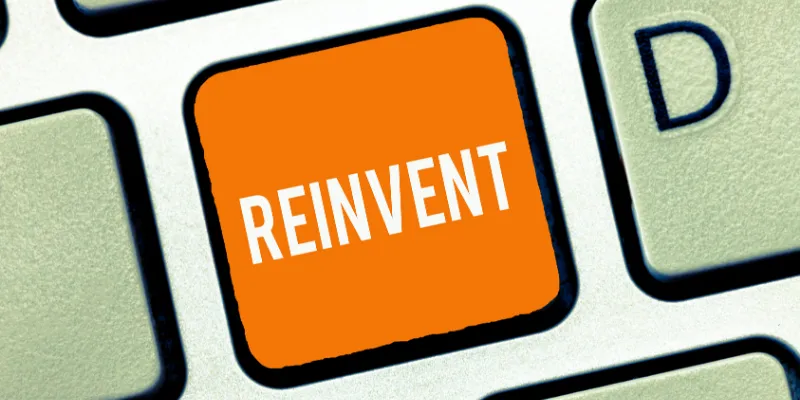Leap into the future: COVID-19 crisis is forcing organisations to reinvent themselves
Tectonic changes caused by the coronavirus pandemic have forced organisations across industries to stay relevant in the changing times.
As early as February, most companies were busy planning their long-term business strategies, setting ambitious growth targets and launching new products. However, an unforeseen force majeure event has brought all those ambitious plans and targets to a nought. The sudden turn of events unleashed by a global disease outbreak has forced organisations to hit a pause and reset button.
While uncertainty prevails over what the future would entail, what is clear is that it would be starkly different from the world we have known. Until a vaccine is made available to counter the virus, the requirements of social distancing and the need for restricted movement will have to remain in place, even if blanket lockdowns are removed.

Shift in Mindset
These tectonic changes have forced a major churning in organisations across industries. The need to stay relevant in the changing times is propelling a major transformation. Companies are preparing for the new normal by challenging and changing their core organisational behaviour, their hierarchies, and their offerings.
Come to think of it, organisations that were extremely wary of allowing work from home to their employees have suddenly devised functional strategies to make remote working and remote client servicing a reality, and the companies that were conventionally slow in adopting automation are not vying for co-opting the latest available technologies.
Shifting Business Models
With most economic activity on hold, many companies have suddenly found their products and services staring at a near-zero demand. With their offerings rendered irrelevant, many startups and established companies have been forced to quickly reconfigure their product offerings and transform their business models.
Given that the current demand comprises only essential items and coronavirus-related equipment, many organisations have shifted to manufacturing PPEs, masks, sanitisers, and essential grocery items. To cite just one example, Foods, an organisation that runs two Quick Service Restaurant brands, has quickly announced the launch of its grocery service ‘Wow! Momo Essential Services’.
Such business decisions are being made everywhere to stay relevant during the time and keep the revenues coming. Adaptability remains the key to survival and organisations that display quick adaptability are the ones that will succeed in staying afloat over the long term.
Technological Automation and Robotics come to the fore
As organisations look to increase efficiency, improve outcomes and optimise costs, they are proactively considering increased adoption of technological automation and robotics. Increased automation helps organisations tide over the shortage of skilled labour while helping decrease manufacturing costs and maintaining the cost advantage.
According to market research, the global traditional industrial robotics market size is expected to grow from $44.6 billion in 2020 to $73 billion by 2025. Greater use of automation also allows manufacturers to maintain the norms of social distancing for their workers, paving the way for safer and unhindered production.
Going forward, we will witness an increase in the adoption of Artificial Intelligence and cloud-based solutions, not only in large organisations, but also in small and medium-scale enterprises. Increasingly, SaaS, IaaS, and PaaS solutions would be used to improve customer relationship management and enterprise resource management, among other functions.
Remote working to be the New Normal
The pandemic has also revolutionised the way we work as it ushers in a series of behavioural shifts. IT giant Tata Consultancy Services has announced that it is working on a plan to allow as much as 75 percent of its workforce to work from home by 2025.
With the pandemic normalising work from home, we are likely to witness a greater acceptance of this practice going forward. Organisations will also realise that this arrangement saves costs by reducing the need for office space and other office infrastructure. This will also help reduce the drop-out rate of women from the workforce. Remote working is further expanding the scope of remote access to everything and greater security against cybercrimes.
Increasingly, office-less organisations will become common as businesses, starting over the next year, will find such a working model viable. A lot of other daily functions have also turned virtual during this pandemic. Be it customer relationship management or client pitching or meetings, we have realised that remote working can be as effective as the conventional mode which was practised before coronavirus. It can even be more effective as it increases employee productivity by eliminating the time and hassle of travelling to work daily.
Flattening Hierarchies
A non-conventional work setting, where a bulk of the workforce is operating from home and is connected remotely, will give way to a more democratic work culture than the traditional style of reporting to a manager. As employees take collective responsibility of managing the crisis, the need for micromanagement has evaporated and the managers are increasingly assuming the role of coordinators and partners. This flattening of hierarchies is another cultural shift that is likely to stay even when the pandemic ebbs.
Within the catastrophe perhaps lies an opportunity, and businesses need to rise to this challenge and build to adopt new ways of working to sustain in the post-coronavirus world.
Edited by Kanishk Singh
(Disclaimer: The views and opinions expressed in this article are those of the author and do not necessarily reflect the views of YourStory.)








